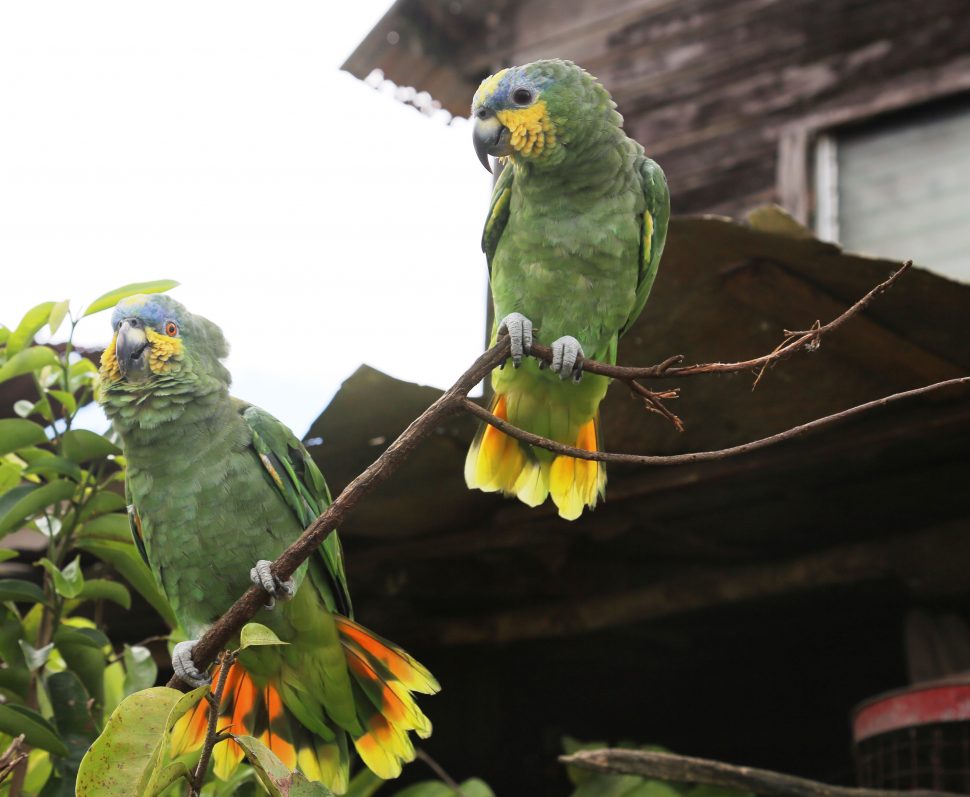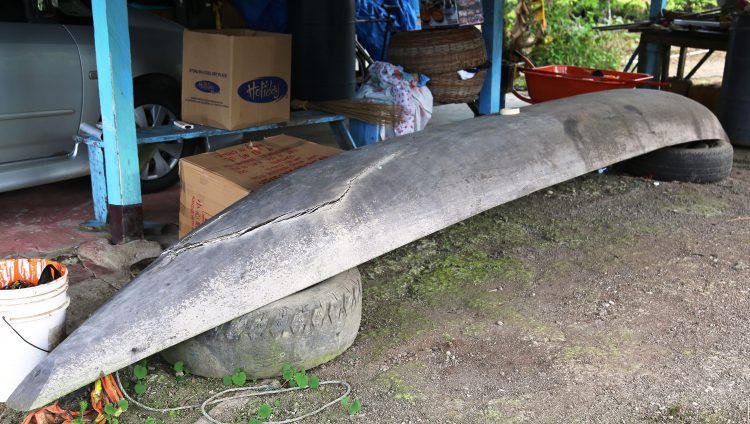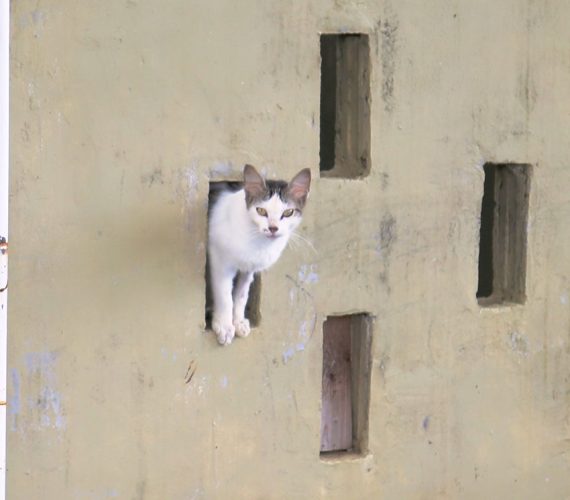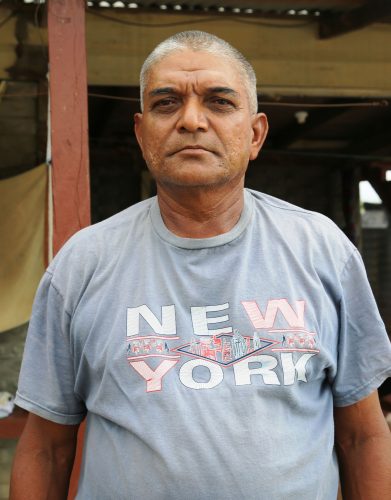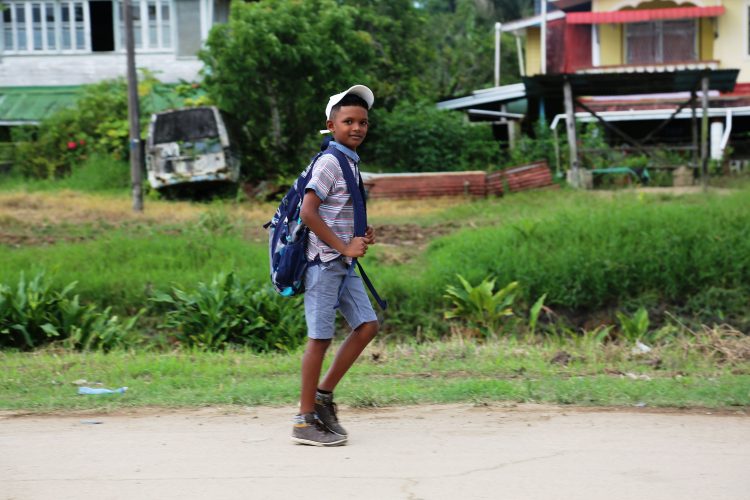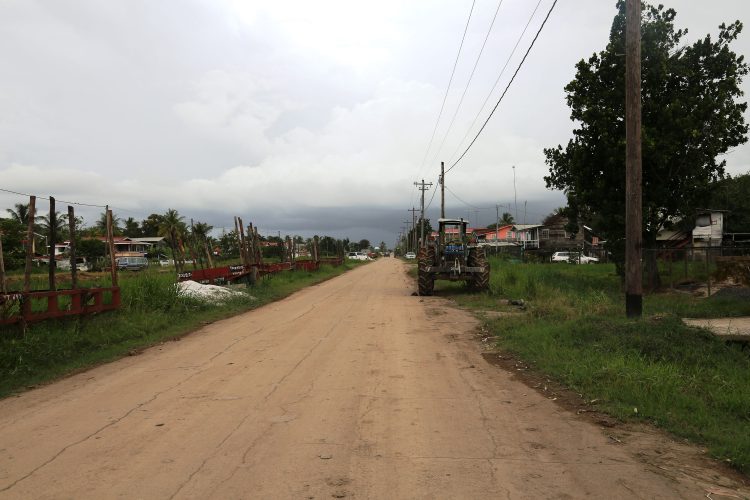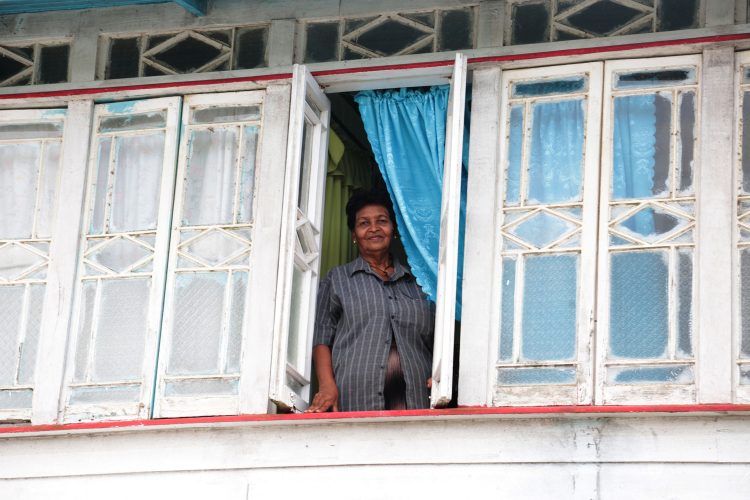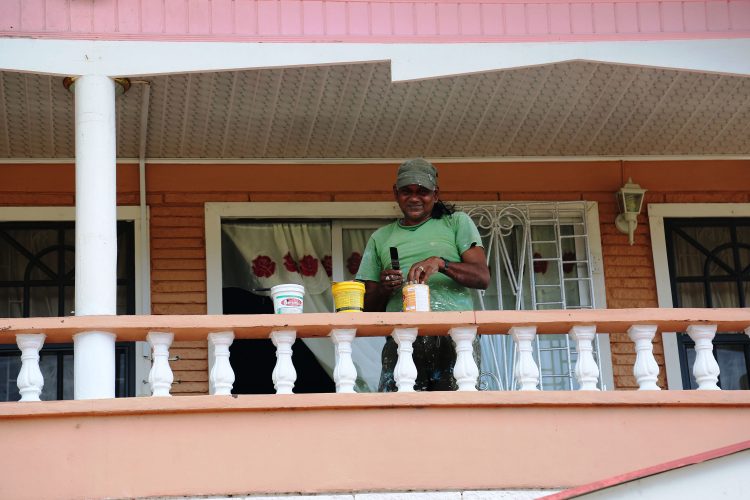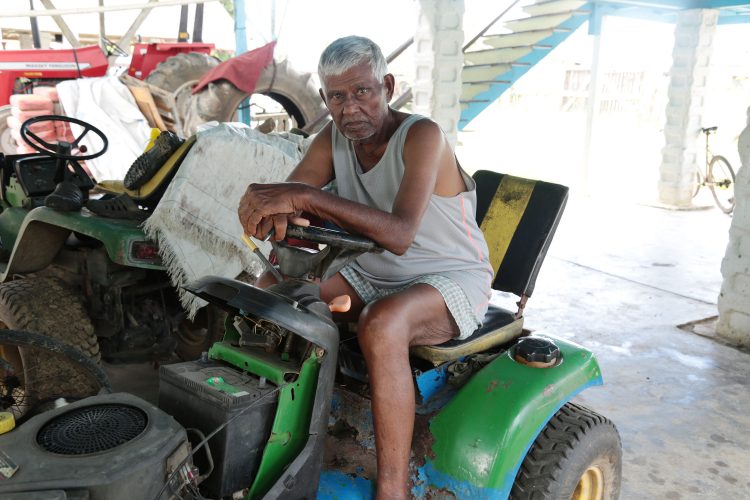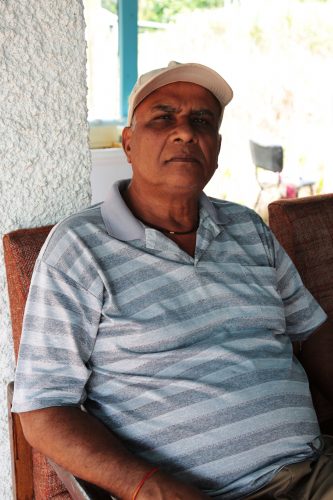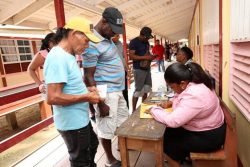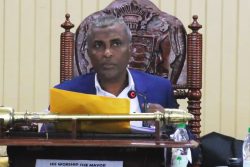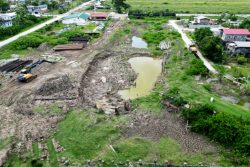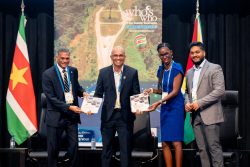Studley Park is a quiet little village on the Canal Number One Public Road, 15.5 miles from Vreed-en-Hoop. The National Gazetteer shows the village as the last before the Conservancy, but this not the case as there is one beyond it called Good Hope.
The village is big enough to hold a few hundred, but is home to less than 100 people, owing to migration, it was said. The villagers who once depended on sugar cane farming for their livelihoods have put their energies into pineapple and citrus farming since the closing of the Wales Estate.
“I was born and raised in Studley Park,” said Pandit Somnauth Sharma. “My mom was born at Hamburg Island and her parents came to Canal Number One at Studley Park in 1920. My mother’s grandfather was an indentured [servant] and [when] he had finished his indentureship, he was awarded a place in Canal and they all moved here. My father’s father came as an indentured [servant] bound to the Vreed-en-Hoop Estate and he was awarded a place at Best Village. My father lived at Endeavour across the road [opposite Studley Park]. He saw my mom when he came to cut grass for his cow. They eventually got married. We were eight siblings. I’m the seventh.”
The name Studley Park, Sharma said, is believed to be English. The names of the villages along Canal Number One originate from the Dutch, French or English, since the colony would have been under the rule of one of these nations at one point or another. According to the pandit, he learnt that the canal was dug in 1663 and overseen by a man named ‘Schulenburg’. The canal became at one time the main mode of transportation for people getting to and from the villages.
Sharma recalled that he attended Mc Gillivray Primary School. His day began hours before sunrise. He would hurry off with his brothers to take the cattle into the backdam before he went to school. Primary school holds special memories for him, he said, adding that the older people were very strict and saw the importance of morals and discipline in children. He shared that Major General (ret’d) Joe Singh who is now Pro-Chancellor at the University of Guyana grew up in Canal Number Two and his father was the headmaster of Mc Gillivray Primary. The late HM, Sharma continued, always took interest in the welfare of the children even outside of school. Sharma, who grew up attending the Vishwanath Mandir, had grown to enjoy playing his mandolin. He distinctly remembers the headmaster passing by and saying, ‘the music that a man listens to tells what kind of person he is’. It was this headmaster, he said, who on another day when passing by his house had seen and heard an excited Sharma shouting about the propeller of a plane passing overhead but calling it the “copella”. He stopped and corrected Sharma.
“Then one time at school we went to the pipe to wash our feet like we usually did before we went into our class but the pipe was not giving and one of my friends yelled to us ‘pipe nah ghee’ and the headmaster asked him what it was that he just said and he tried correcting himself and said ‘sir, the pipe not gheeing’. I could never forget that day,” Sharma chuckled adding that the older people always took it upon themselves to correct the younger ones when they were wrong. Sharma later went on to attend West Demerara Secondary School.
“Because of my discipline I don’t think that they should ban corporal punishment at school. I see nothing wrong with getting a little whip and tapping them up. Children not being apprehended now is worse than animals in the pasture. A community was what brought up the children in my days. If you get beat in school, before you get home, your mother know already about it and you getting more lashes because you were not supposed to get lashes in the first place. Too much democracy or total freedom without laws cause total lawlessness,” Sharma said.
Later after becoming a pandit, which he has been for 40 years, Sharma helped to see that the Vishwanath Mandir, built the same year he was born, was rebuilt in 1985. He also assisted in the building of the mandir at Good Hope, a village away. At present, Sharma is working on another mandir project where a bigger mandir is being built in Parfait Harmony and will be in the setting of an ashram that will include a humanitarian centre and where persons can be trained.
Sharma said, “Fifty years ago Canal itself used to be a family. People work themselves out of poverty. This cohesiveness, however, is not like it used to be. We still talk over the fence, but you feel that closeness is not there.”
As regards what can be done for the village, he said that Canal has enough drainage, but maintenance is needed. He also asks that the Ministry of Agriculture work closely with the farmers to provide marketing, adding that a juice factory would be great to have as juice and jam can be made from whichever fruits are in season; wine too can be made.
Eighty-year-old Rajberdan Nankissoore sat on his verandah in Studley Park among relatives. He is a native of the village and so was his father, he said. He grew up with six sisters and a brother. Only he and two of his sisters are alive today.
Nankissoore worked at several companies in his younger years including Toolsie Persaud Ltd, where he was a manager. Later, he settled for farm life and began planting citrus. It has been almost 30 years since he has been farming and though his age may have slowed him down a bit, he still finds himself in the backdam working. He has workers who assist him on the farm. For a number of years, he shared, he sold his citrus at Vreed-en-Hoop where he still sells today. He also drives his tractor to and from the backdam.
The man shared that he always liked the quiet life of Studley Park and though he had moved to the United States as a permanent resident, he was not prepared to deal with the winter and returned.
Though he had no complaints with regard to Studley Park, he did complain about the dispensary situated three villages away at Nooitgedacht saying that sometimes it did not have medications for patients. The man said that some time ago he went to the dispensary complaining about chest pains, but the medic said it was nothing and sent him away without doing any check. Nankissoore would like the health facility to have a doctor instead of a medic.
Further along the road, a number of six graders were seen heading to lessons. At the time of my visit, teachers were on strike and there was no school. So another teacher took it upon herself to give lessons for children preparing for the National Grade Six Assessment this school year.
Dananauth Chintan was born in Endeavour, the village opposite, but moved to Studley Park as an adult with his family. In the earlier years, he shared, many of the farmers depended on the launches to take their produce to Georgetown. Some of the most well-known boat captains, he noted, were Dilchan, Seepaul and Arjune. His parents were among the farmers who relied on the boats. They planted sugar cane, pineapple and citrus.
Chintan said that by age of seven he was already in the backdam trying to weed the beds. His chores, apart from weeding the beds, were to throw fertilizers and take the cows out to graze. There were nine of them, he said, brothers and sisters but only the boys worked the farms. The man confessed that he never liked school and there were many times when he would leave home for school but never arrive there. Instead he would make his way into the backdam where he would climb trees and go swimming in the canals. Yet, he said, the children of his time were more mannerly and hard working. “We had to wake at four every morning to go to the backdam. They [children today] have more rights now. It was rough in my time. The teacher got wild cane in your back. The teachers were so strict, you couldn’t even talk to your friend next to you,” he said. School was never a nice place and he was more comfortable roaming the backdam.
Chintan said too that the villagers of his day were Indian-oriented and greetings of ‘good morning’ or ‘good night’ were considered English so children were chastised when they used those words. They were expected to say ‘Ram Ram’ or ‘Seeta Ram’.
When he was older, he took to farming as a means to provide for himself and family. Today, he serves as a ranger attached to the Water Users Association which sees that the drains are kept clean.
“What I’d like to see happen for my area is that they move the drain (four-foot) to the back of our yards where the machine can better clean it. I’d like for GPL to reinstall our streetlights; they took it down three months ago. Then there is the road that they had started fixing. The road only fix from the Bagotville junction up to Fairy Bridge. There are other parts along the road that need fixing and I hope they come back and continue working on it,” Chintan said.
